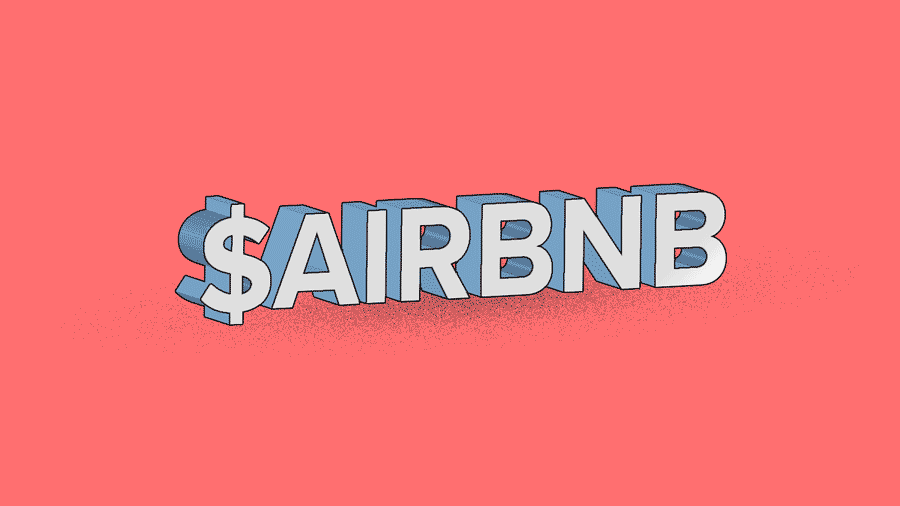After months of anticipation, Airbnb has finally publicly disclosed its S-1 registration statement as it prepares for its public market debut.
Subscribe to the Crunchbase Daily
The IPO, arguably the most anticipated of 2020, is set to happen before the end of the year.
The company announced last year that it planned to go public in 2020, but the COVID-19 pandemic initially raised questions if an IPO was still in the cards. It confidentially filed an S-1 with the SEC in August.
As a private company, Airbnb raised around $6.4 billion in funding from investors including FirstMark, General Atlantic, and Andreessen Horowitz. It last raised a $1 billion private equity round led by Silver Lake and Sixth Street Partners, and $1 billion in debt financing in April 2020 after the COVID-19 pandemic took a hammer to its business.
The company suffered as the pandemic put a sudden stop to travel and had to lay off 1,900 employees, or about 25 percent of its team. It’s since recovered a bit after shifting its focus to local travel.
The company acknowledged the impact of COVID-19 on its business in the S-1 filing.
“COVID-19 has materially adversely affected our recent operating and financial results and is continuing to materially adversely impact our long-term operating and financial results,” the company wrote. “However, we believe that as the world recovers from this pandemic, Airbnb will be a vital source of economic empowerment for millions of people.”
The impact of COVID-19 was apparent in Airbnb’s reported gross booking value and revenue this year (we’ll get more into revenue later). While the company’s gross booking value grew 29 percent between 2018 and 2019 (from $29.4 billion to $38 billion), it fell in 2020 to $18 billion, or down 39 percent year over year.
“In early 2020, as COVID-19 disrupted travel across the world, Airbnb’s business declined significantly. But within two months, our business model started to rebound even with limited international travel, demonstrating its resilience. People wanted to get out of their homes and yearned to travel, but they did not want to go far or to be in crowded hotel lobbies. Domestic travel quickly rebounded on Airbnb around the world as millions of guests took trips closer to home. Stays of longer than a few days started increasing as work-from-home became work-from-any-home on Airbnb. We believe that the lines between travel and living are blurring, and the global pandemic has accelerated the ability to live anywhere. Our platform has proven adaptable to serve these new ways of traveling,” the company wrote.
A look at the numbers
Airbnb’s revenue was climbing annually, until 2020 when the COVID-19 pandemic hit. Its total revenue fell around 31 percent between the first nine months of 2019 and the same period in 2020.
Airbnb reported nearly $2.52 billion in revenue for the first nine months of 2020, down from nearly $3.7 billion in revenue for the same period in 2019.
Its revenue had been climbing from $919 million for the year that ended on Dec. 31, 2015, nearly $1.7 billion in 2016, nearly $2.6 billion in 2017, nearly $3.7 billion in 2018, and $4.8 billion in 2019.
The company’s net losses have been all over the place since 2015, but 2020 has definitely been the worst, for obvious reasons. Airbnb reported losses of $135.4 million in 2015, $147.4 million in 2016, $70 million in 2017, $16.9 million in 2018, and $674.3 million in 2019.
The company’s net losses for the first nine months of 2020 have come out to about $696.9 million, more than double the $322.8 million in losses it recorded for the first nine months of 2019.
The players involved
Silver Lake and Sixth Street Partners, which threw Airbnb a lifeline earlier this year amid the COVID-19 pandemic, are two of the largest stakeholders in the company. Silver Lake owns 23.5 percent of the company’s Class A common stock, while Sixth Street owns about 18.5 percent of the Class A common stock. Other large shareholders include DST Global (17.5 percent of Class A and 2.3 percent of Class B), Jonathan Poulin and Affiliated Entities (13.1 percent of Class A), Greystar Real Estate Partners (5.4 percent of Class A), Accel (5.3 percent of Class A), Sequoia (4 percent of Class A and 16.6 percent of Class B), and Founders Fund (5.4 percent of Class B).
What’s coming up
Airbnb is expected to begin trading on the Nasdaq under the ticker ABNB in the coming weeks. Morgan Stanley and Goldman Sachs were among the underwriters for the IPO.
Illustration: Li-Anne Dias

Stay up to date with recent funding rounds, acquisitions, and more with the Crunchbase Daily.






![Illustration of a guy watering plants with a blocked hose - Global [Dom Guzman]](https://news.crunchbase.com/wp-content/uploads/quarterly-global-3-300x168.jpg)
67.1K Followers